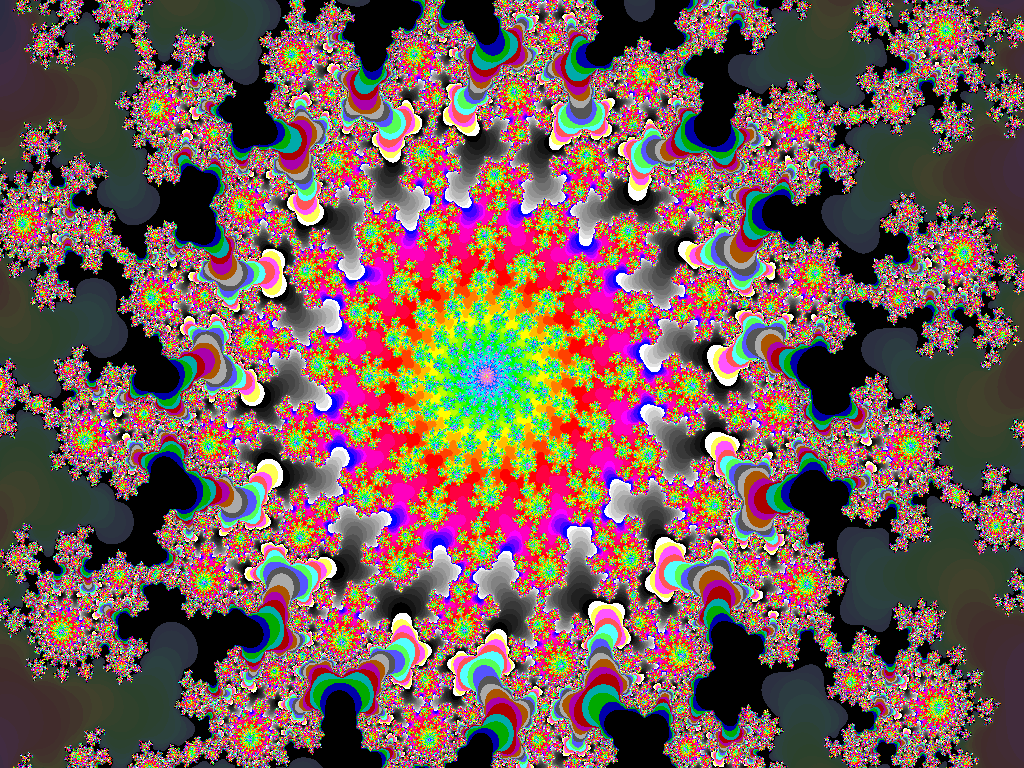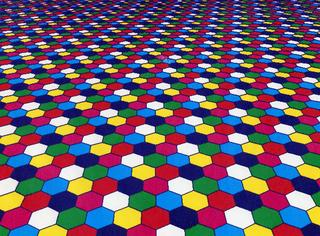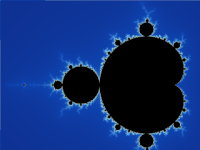DUALITY
One can draw a triangle,
put a dot it the middle of each of the three sides,
connect those dots,
and have a smaller triangle.
One can do the same thing with a square to get a smaller square
or a pentagon to get a smaller pentagon.
We can think of this as shaving down the corners until
the centers of the polygon sides are new corners.
This sort of dual polygon might be exciting
to a six year old playing with pencil and paper.
Consider a four-sided triangular pyramid tetrahedron
with four triangular faces,
six linear edges, and four corner
vertices.
Do the same shaving-down game on the corners and,
lo and behold!, we get a smaller tetrahedron
with corners where the faces used to be.
This might entertain us even when we're eight or nine.
Along the way we get a shape with four hexagons
and four triangles, a little more interesting,
but that's not where I'm going with this discussion.
Let's do the same thing with a cube with six square faces,
twelve linear edges, and eight corner vertices.
Now we don't get another cube.
Instead, ah so!, we get a shape called an octahedron
with eight triangular faces,
twelve linear edges perpendicular to the original cube edges,
and six corner vertices.
Along the way we get a shape with eight triangles
and six smaller, rotated squares,
again interesting but off my topic here.
The cube with faces-edges-vertices 6-12-8
is the dual of the octahedron 8-12-6.
There are two more three-dimensional polyhedra.
One is a dodecahedron with twelve pentagonal faces,
thirty linear edges, and twenty corner vertices.
They used to make desk sculpture calenders in this shape,
twelve faces, twelve months, one month on each face.
Its dual is an icosohedron with twenty triangular faces,
thirty linear edges, and twelve corner vertices.
The dodecahedron 12-30-20
is the dual of the icosohedron 20-30-12.
Besides the physical beauty of these five platonic solids,
the duality relationships are wonderful.
In addition to the duality-symmetry of these shapes,
there a rule that edges+2=faces+vertices.
Put more succinctly E+2=F+V
or F-E+V=2
for any three-dimensional polyhedron.
The analogous rule for two-dimension polygons
is kind of stupid and obvious,
edges=vertices, E=V.
If one can imagine four dimensions,
maybe late at night after a few drinks,
the same rules apply.
There are six regular polyhedroids
with similar duality relationships
from three-dimensional cells, two-dimensional faces,
one-dimensional edges, and zero-dimensional corner vertices.
 At a forum in Palm Springs, California,
in 2022 January,
Professor Whalen
just gave two wonderful talks
for a lay audience
on great works of literature
by Homer (Oμηρoς), Vergil, and Shakespeare.
These works have great historical importance and literary value.
When we were chatting afterward
he asked me what I do and I said I was a mathematician.
He said when mathematicians and physicists talked about their work
what he found most interesting, surprising, and pleasing
was the prominence of aesthetic beauty,
a beauty they were reticent to explain.
Maybe they were shy,
maybe they felt an English professor wouldn't understand,
maybe they wanted to keep their appreciation to themselves, or
maybe they really didn't understand the beauty of their work.
In any case,
I claim my work is aesthetically beautiful and,
if I'm going to claim my work is aesthetically beautiful,
then it is incumbent upon me to be able to explain
that beauty, even to a non-mathematician.
(Here is the
Wikipedia
page on beauty in mathematics.)
At a forum in Palm Springs, California,
in 2022 January,
Professor Whalen
just gave two wonderful talks
for a lay audience
on great works of literature
by Homer (Oμηρoς), Vergil, and Shakespeare.
These works have great historical importance and literary value.
When we were chatting afterward
he asked me what I do and I said I was a mathematician.
He said when mathematicians and physicists talked about their work
what he found most interesting, surprising, and pleasing
was the prominence of aesthetic beauty,
a beauty they were reticent to explain.
Maybe they were shy,
maybe they felt an English professor wouldn't understand,
maybe they wanted to keep their appreciation to themselves, or
maybe they really didn't understand the beauty of their work.
In any case,
I claim my work is aesthetically beautiful and,
if I'm going to claim my work is aesthetically beautiful,
then it is incumbent upon me to be able to explain
that beauty, even to a non-mathematician.
(Here is the
Wikipedia
page on beauty in mathematics.)





